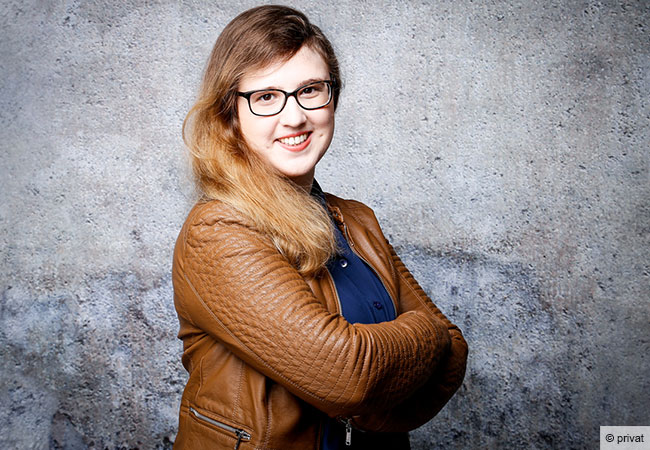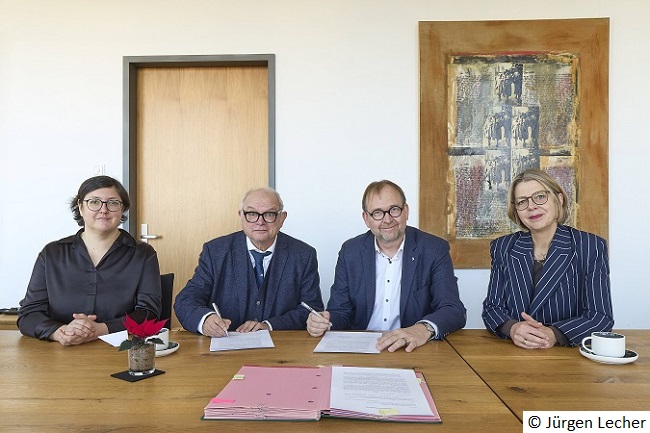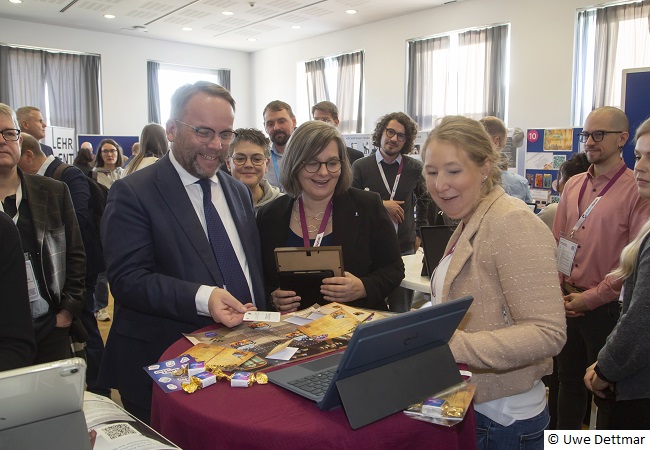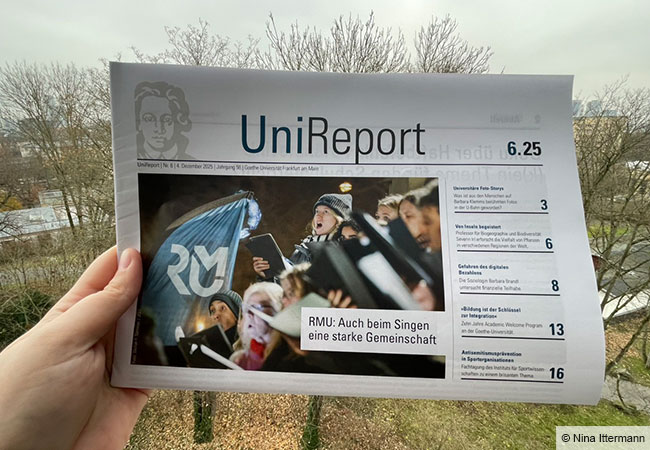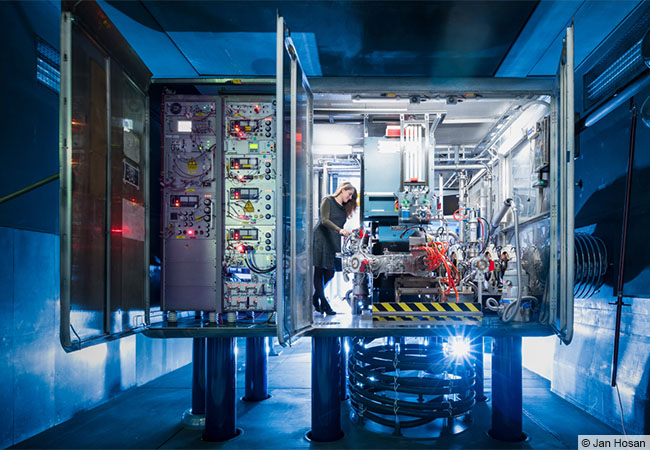The exhibition „StolperSeiten – NS-Raubgut in der Universitätsbibliothek Frankfurt am Main“ (“Stumbling Pages – NS looted property in the Frankfurt University Library”) will be made available online as a virtual 360° tour on Provenance Research Day, which falls on April 12, 2023 this year. The exhibit is based on a project funded by the German Lost Art Foundation (Deutsches Zentrum Kulturgutverluste) as part of which the library is researching books in its inventory that can be attributed to persecutees of the Nazi era. The extension is the direct result of comparatively frequent finds, with the project now running until November 2024. There have already been several restitutions to Jewish and other organizations.
„StolperSeiten“ (Stumbling Pages) was the title of a much-noticed 2022 exhibition at the library on Nazi looted property at the Frankfurt University Library (“NS-Raubgut in der Universitätsbibliothek Frankfurt am Main”). This exhibition is now open again, but in the form of a virtual 360° tour. It spans the historical framework that led to the looting of hundreds of thousands of cultural assets in Germany and Europe from 1933 onwards. With its focus on the city of Frankfurt, and the city’s libraries in particular, the exhibit addresses the role libraries played in the organized looting and how they profited from it, pointing out many concrete cases of injustice. In addition, the use of partially interactive elements also makes the work of contemporary provenance researchers more accessible. http://stolperseiten.studiumdigitale.uni-frankfurt.de/
The online exhibit was designed as part of a project run by “fuels – Future Learning Spaces”. Funded by the Hessian Ministry of Higher Education, Research, Science and the Arts, the joint project of Goethe University, Darmstadt Technical University and Darmstadt University of Applied Sciences aims to bring innovative technologies such as 360°, augmented and virtual reality into the university landscape. For more information, visit: https://futurelearning.space/
Project to identify looted National Socialist property
In November 2020, Frankfurt University Library’s (UB JCS) Provenance Research team started a project to identify looted National Socialist property in a first sub-collection comprising around 80,000 volumes. The search focuses on so-called „cultural property seized as a result of persecution“, i.e. books that were looted or extorted from persecuted persons or institutions during the Nazi era. Commenting on the motives for researching Nazi looted property in the library, UB JCS director Daniela Poth says: „We consider it a moral obligation to uncover the injustice committed during the Nazi era and to document it in public, even if this does not make up for it. That is something university management, library management and project management all agree on.“ The project at Goethe University’s UB JCS is sponsored by the German Lost Art Foundation. In addition, given the fact that many of the affected books are on permanent loan at the UB JCS but historically belong to the municipality, the city of Frankfurt is also providing a subsidy for the project costs.
Following the approval for an extension – itself based on the comparatively high number of finds – the project will now run until November 2024, and therefore already passed its halftime mark a few months ago. Time for an interim assessment. To date, almost 40,000 volumes have been individually checked on the shelf for any references to previous owners. This has turned out to be the case in an unusually high percentage of about 39%. As a result, more than 15,000 volumes have had to be examined more closely to clarify whether the suspicion of looted property is merited. Such an initial suspicion exists for over 3,800 books. Another 200 books have met with strong suspicion, whereas 349 books have been confirmed as cases of looted property. However, the project team’s work does not end with the investigation into actual numbers or with the documentation of these cases on UB JCS’ freely accessible search portal. For all confirmed cases of looted property, the project staff also researches the existence of descendants or successor institutions. If this search, which can be very complex, is successful, the library contacts the potential restitution recipients and clarifies whether they desire a return, or would prefer another „fair and just solution”.
The fact that it took some time after the start of the project before the first restitutions could be both prepared and carried out illustrates just how time-consuming research and coordination are. Within the last six months, three books were restituted to the Jewish Community of Munich and Upper Bavaria, one book to the Jewish Religious Community of Baden and eight volumes to the Minerva Lodge of the Three Palms in Leipzig. Corresponding references to these volumes are available in the library’s search portal – as virtual „StolperSeiten“. Further restitutions are in the preparatory stage and expected to be completed during the course of the year.


